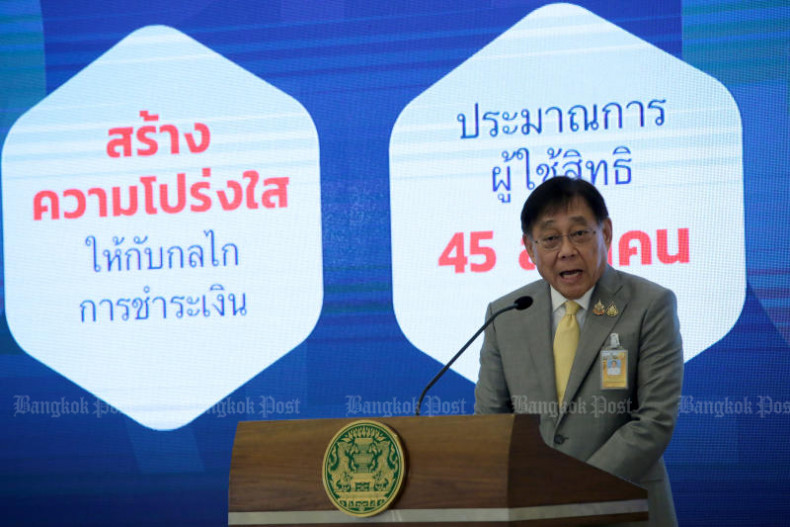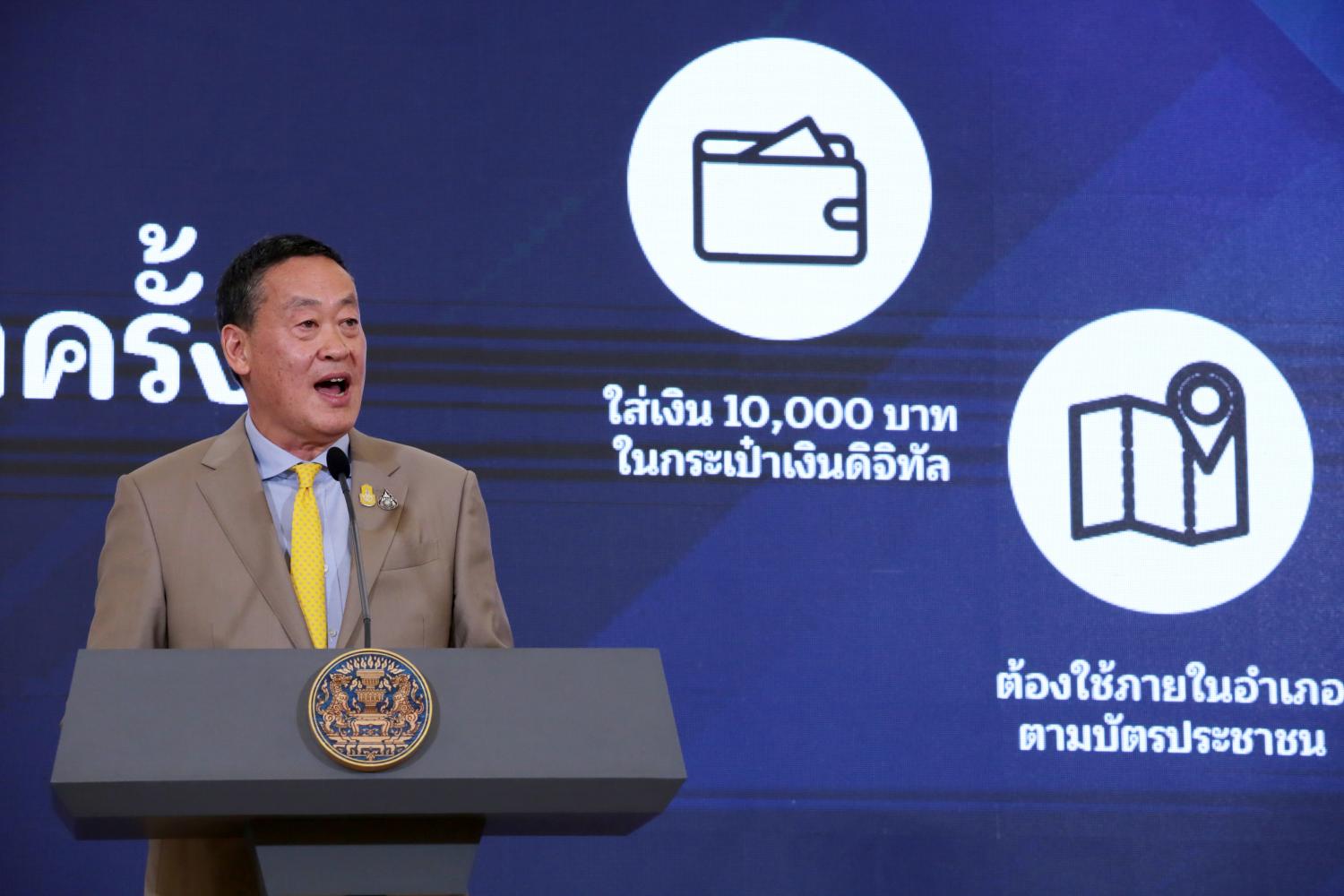(CTN News) – The Thailand government hopes that a delayed cash distribution to adult residents will boost economic activity and address Southeast Asia’s highest household debt levels.
Finance Minister Pichai Chunhavajira stated at a press conference on Wednesday that distributing 10,000 baht to all Thais 16 and older who meet a particular income criterion in the fourth quarter will increase purchasing power, revitalize manufacturing, and promote overall economic confidence.
Beneficiaries can sign up for the so-called digital wallet between August 1 and September 15 using the Tang Rath app, which is already widely used to access dozens of government services. Those without cellphones can register from September 16 to October 15 with their ID cards.
Officials have stated that no messages or calls will be sent to encourage people to register for the scheme, citing reports of active scammers.
Consumers can spend the money at more than 2 million retail outlets, convenience stores, and mom-and-pop shops under the system, which is geared at assisting both consumers and small companies, albeit tight restrictions include a ban on purchasing alcohol or cannabis, among other things.
The handouts, which are the centerpiece of Prime Minister Srettha Thavisin’s efforts to restore growth and the ruling coalition’s prospects, were originally scheduled for early 2024 but were postponed due to disagreements over how the government would fund the stimulus.

However, lawmakers last week approved proposals to spend an additional 122 billion baht in the current fiscal year to fund the digital wallet.
“This is not just a normal cash handout,” Mr Pichai stated. “It’s a stimulus that encompasses all levels of economic activity, which will lead to more income generation and generate additional tax revenue for the government to do other things.”
- Cash cannot be used to purchase alcohol, tobacco, cannabis, lottery tickets, gold, diamonds, natural gas, fuel, electrical gadgets, and certain other items.
- More than 2 million retailers can join the scheme; registration opens on October 1.
- Citizens must purchase things at stores in their respective districts. Online transactions are not permitted.
- Registered merchants and vendors are permitted to transact among themselves without any restrictions.
- The annual income limit for participants was set at 840,000 baht last year.
- People having more over 500,000 baht in deposits in banks as of March 31 cannot join in this digital wallet.
The government had planned to spend approximately 500 billion baht on the stimulus because there are 50.7 million persons eligible. However, officials have now stated that they foresee a maximum take-up rate of 90%, bringing the cost down to around 450 billion baht.
The funds will be drawn from the state budget over two fiscal years. Of the amount, 165 billion baht will come from the fiscal 2024 budget, which ends on September 30, and the remaining 285 billion baht will come from the next fiscal year.
According to Deputy Finance Minister Julapun Amornvivat, the administration has several alternatives for raising finances, including issuing a supplementary budget.
If effective, authorities expect the stimulus to boost growth in Southeast Asia’s second-largest economy, which has averaged less than 2% per year for the past decade.
Thailand’s recovery from the coronavirus pandemic has been hampered by a decline in manufacturing and exports, with tourism the only bright point in the economy.
While headline inflation has remained below the central bank’s target range in the past year, prompting repeated calls for a rate cut from the government, the Bank of Thailand has cited household debt levels of more than 90% of GDP as one of the reasons to keep borrowing costs at their highest level in a decade.
As of the end of March, household debt had risen to 16.37 trillion baht, or 90.8% of the country’s GDP, up from less than 14 trillion baht before to the outbreak, according to central bank figures.
Thailand’s Economic Revival Strategy and Government Goals

Prime Minister Srettha Thavisin, who was slated to lead the press conference, did not attend. He stated on X that the Ministry of Finance would provide specifics.
“We are ready. Today is our first step. “We will move forward with another 50 million people,” he wrote.
Deputy Prime Minister Phumtham Wechayachai downplayed Mr Srettha’s absence, saying the prime minister had other commitments and that the government functioned as a team.
Sirikanya Tansakul, deputy head of the opposition Move Forward Party, said Wednesday’s much-anticipated news conference yielded no fresh information.
She stated that, aside from the guaranteed registration period, doubts about whether monies set aside for the 2024 fiscal year may be spent in the 2025 fiscal year remained unresolved.
The fiscal year 2024 ends on September 30, however the funds will be dispersed in the final quarter of this year, which falls inside the fiscal year 2025.
“There is no meaningful update. “No expectations, no disappointments,” she stated.
Source: Bangkok Post














